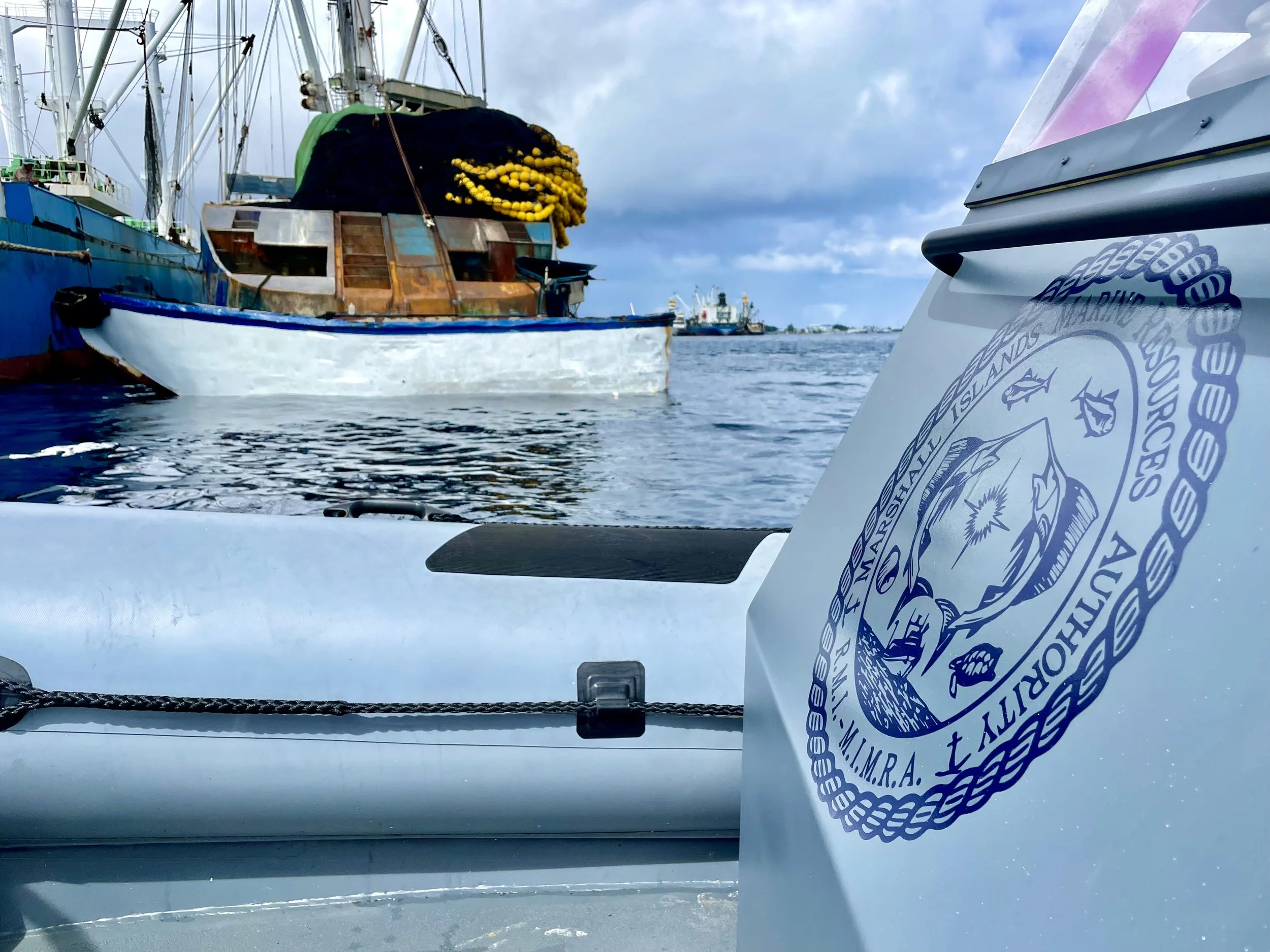As I dive deeper into the impacts of climate change in fisheries in the region I call home and into the future of RMI fisheries a place that has been literally many 2nd home for a few years now, the more anguished I get.
I have been writing a bit about this and will continue to do so because, as the paper I present here clearly says: that “high trophic level species (like tuna) will be more impacted by climate change than by fishing pressure under the assumption that they remain nearby their MSY levels”.
So even if we keep looking and managing the stocks well as we do in the WCPO and run tight control over IUU fishing, all things we can and are doing…. The impact of Climate Change (something we didn't create) is having a more significant impact on our fisheries and future than what we actually do well… and that is DEEPLY upsetting.
The paper “Implications for the global tuna fishing industry of climate change-driven alterations in productivity and body sizes” is published by a group of heavyweights based in AZTI, the Basque research institute that is a reference in tuna fisheries.
I don't have access to the original, so I just quote the abstract below… but tackle the original if you have access (and send me a copy?).
Tunas and billfishes are the main large pelagic commercial fish species. Tunas comprised around 5.5 million t and USD 40 billion in 2018. Climate change studies and projections estimate that global fisheries productivity will decrease overall due to climate change. However, there are seldom projections of the climate-driven productivity of the higher trophic levels where tunas and billfishes belong. In this work, we use a mechanistic model to evaluate the effects of climate change and fishing for globally distributed and commercially exploited seven tuna species and swordfish which are divided into 30 stocks for management purposes, under a range of climate change (RCP 2.6 and 8.5) and fishing scenarios (from no fishing to 1.5 times the fishing mortality (F) at the Maximum Sustainable Yield, FMSY) from two Earth System Models (IPSL and MEDUSA). The results suggest that high trophic level species will be more impacted by climate change than by fishing pressure under the assumption that they remain nearby their MSY levels. However, no-fishing scenarios project much higher biomass. The overall productivity of the target species will decrease by 36% and only the Pacific bluefin showing a slight increase in the future. Five species; Atlantic and Southern bluefins, swordfish, bigeye, and albacore are estimated to decrease in biomass and size at different rates. These species represent almost a third of the landings in the Atlantic Ocean and 10% in the Pacific Ocean being the bluefins, the highest-valued tuna species. On average, the body size is expected to decrease up to 15% by 2050. Fish price and demand are partially driven by body size and therefore, revenues can be reduced even in stocks with an increase in productivity. The fishing industry can adapt to the changing climate by increasing the value of fish through sustainability certifications and reducing fuel consumption and time at sea with higher digitalisation. Reducing fuel consumption would also be an additional mitigation measure to climate change since it would reduce CO2 emissions.
I agree with the fuel issue consumption, but as expected to disagree on the ecolabelling issue… and here, I do agree with the FFA Trade and Industry news that suggests that as premiums associated with certified sustainable tuna have now eroded mainly due to a high-level of uptake by fishing companies (is there any tuna fishery not certified?), other options for increasing the value-proposition for tuna will likely need to be considered.
As you all know… I’m not a fan of private certifications… all the opposite…. and I think more and more people realise that there is no value in them other than squeezing money out of producers and giving more work to the regulators that need to get involved in commercial issues.
in any case… this all affects the future of people I work with everyday and are my friends.
